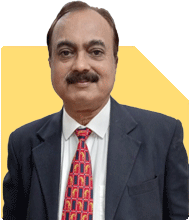Hi i am 39 year old my in hand salary after tax is 51 lpm I have fixed deposit worth 80 lac ppf of 34 lac, I have own flat fully paid, mutual fund around 13 lac,10 lac emergency fund, my wife housewife and son is 3 year old, what can I do to plan my retirement my current yearly expense is around 9 lacs and I don't have any loan
Ans: Planning for retirement is crucial, and it's wonderful that you're thinking ahead. Let's create a comprehensive plan to ensure a comfortable and secure retirement for you and your family. I'll guide you through the steps and strategies needed, addressing various aspects of your financial situation.
Understanding Your Current Financial Situation
You have a strong financial foundation, which is great. Your current financial assets include:
Fixed Deposit: Rs. 80 lakh
PPF: Rs. 34 lakh
Mutual Funds: Rs. 13 lakh
Emergency Fund: Rs. 10 lakh
Fully Paid Flat
Your annual expenses are Rs. 9 lakh, and you have no loans. With these details in mind, we can create a solid retirement plan.
Setting Retirement Goals
First, let's set clear retirement goals. This includes determining the age you wish to retire, estimating your post-retirement expenses, and accounting for inflation.
Retirement Age: Let's assume you plan to retire at 60.
Post-Retirement Expenses: Estimating your expenses to increase with inflation, let's assume Rs. 12 lakh annually.
Your current expenses of Rs. 9 lakh will likely increase over time due to inflation. Planning for increased expenses ensures you won't fall short of funds during retirement.
Building a Retirement Corpus
To ensure a comfortable retirement, you need to build a substantial retirement corpus. Given your current financial assets and future goals, let's discuss how to achieve this.
Mutual Funds: A Key Investment
Mutual funds are a crucial part of your investment strategy. They offer diversification, professional management, and the potential for higher returns. Let's explore the categories of mutual funds and their benefits:
1. Equity Mutual Funds
Equity mutual funds invest in stocks. They have the potential for high returns but come with higher risk.
2. Debt Mutual Funds
Debt mutual funds invest in bonds and fixed income securities. They are safer but offer lower returns compared to equity funds.
3. Balanced or Hybrid Funds
These funds invest in both equity and debt, providing a balance of risk and return.
Advantages of Mutual Funds
Diversification: Mutual funds spread investments across various assets, reducing risk.
Professional Management: Experts manage your investments, aiming for the best returns.
Liquidity: You can easily buy or sell mutual fund units.
Compounding: Reinvesting returns can lead to significant growth over time.
Risk and Power of Compounding
Mutual funds come with market risks. However, long-term investments usually balance out short-term market fluctuations. The power of compounding significantly boosts your corpus over time. By reinvesting your returns, your money grows faster.
Disadvantages of Index Funds and Direct Funds
While index funds track market indices and come with lower fees, they lack the active management that can potentially outperform the market. Direct funds may save on commissions, but investing through a certified financial planner (CFP) provides valuable guidance and better fund selection.
Investing in Actively Managed Funds
Actively managed funds, chosen by an experienced CFP, often outperform index funds. A CFP’s expertise helps in selecting funds tailored to your financial goals and risk tolerance.
Structuring Your Investments
Now, let's structure your investments to build a robust retirement corpus.
Emergency Fund
You already have a Rs. 10 lakh emergency fund. Keep this in a liquid or ultra-short-term debt fund to ensure quick access.
Fixed Deposits and PPF
Your fixed deposit and PPF are safe investments. However, their returns may not outpace inflation in the long term. Consider moving a portion into higher-yielding investments like mutual funds.
Diversifying Your Mutual Fund Portfolio
Diversification is key. Spread your investments across various mutual funds:
Equity Funds: Allocate a significant portion to equity funds for higher returns.
Debt Funds: Invest in debt funds for stability and income.
Balanced Funds: Include balanced funds to mitigate risk while aiming for growth.
Systematic Investment Plan (SIP)
Investing through SIPs ensures disciplined investing and rupee cost averaging. This strategy reduces the impact of market volatility.
Reviewing and Rebalancing Your Portfolio
Regularly review and rebalance your portfolio. This ensures your investments stay aligned with your goals and risk tolerance. A CFP can provide ongoing guidance and adjustments.
Tax Planning
Effective tax planning maximizes your returns. Utilize tax-saving instruments and plan withdrawals to minimize tax liabilities.
Insurance Coverage
Ensure you have adequate insurance coverage:
Life Insurance: Protect your family’s future with sufficient life insurance.
Health Insurance: Adequate health insurance covers medical emergencies without draining your savings.
Retirement Income Streams
Plan for multiple income streams during retirement:
Systematic Withdrawal Plan (SWP): Use SWPs from mutual funds for regular income.
Dividends: Invest in dividend-paying funds or stocks.
Part-Time Work: Consider part-time work or consultancy for additional income.
Estate Planning
Estate planning ensures your assets are distributed as per your wishes. Prepare a will and consider trusts for efficient transfer of wealth.
Final Insights
Planning for retirement involves a multi-faceted approach. By diversifying your investments, utilizing mutual funds, and planning for tax efficiency, you can build a substantial retirement corpus. Regular reviews and adjustments with a CFP ensure you stay on track to achieve your retirement goals.
Conclusion
Planning your retirement requires careful consideration of various factors. By following the outlined strategies, you can ensure a comfortable and secure retirement for you and your family. Regularly consulting with a CFP will help you stay on track and make informed decisions.
Best Regards,
K. Ramalingam, MBA, CFP,
Chief Financial Planner,
www.holisticinvestment.in

























